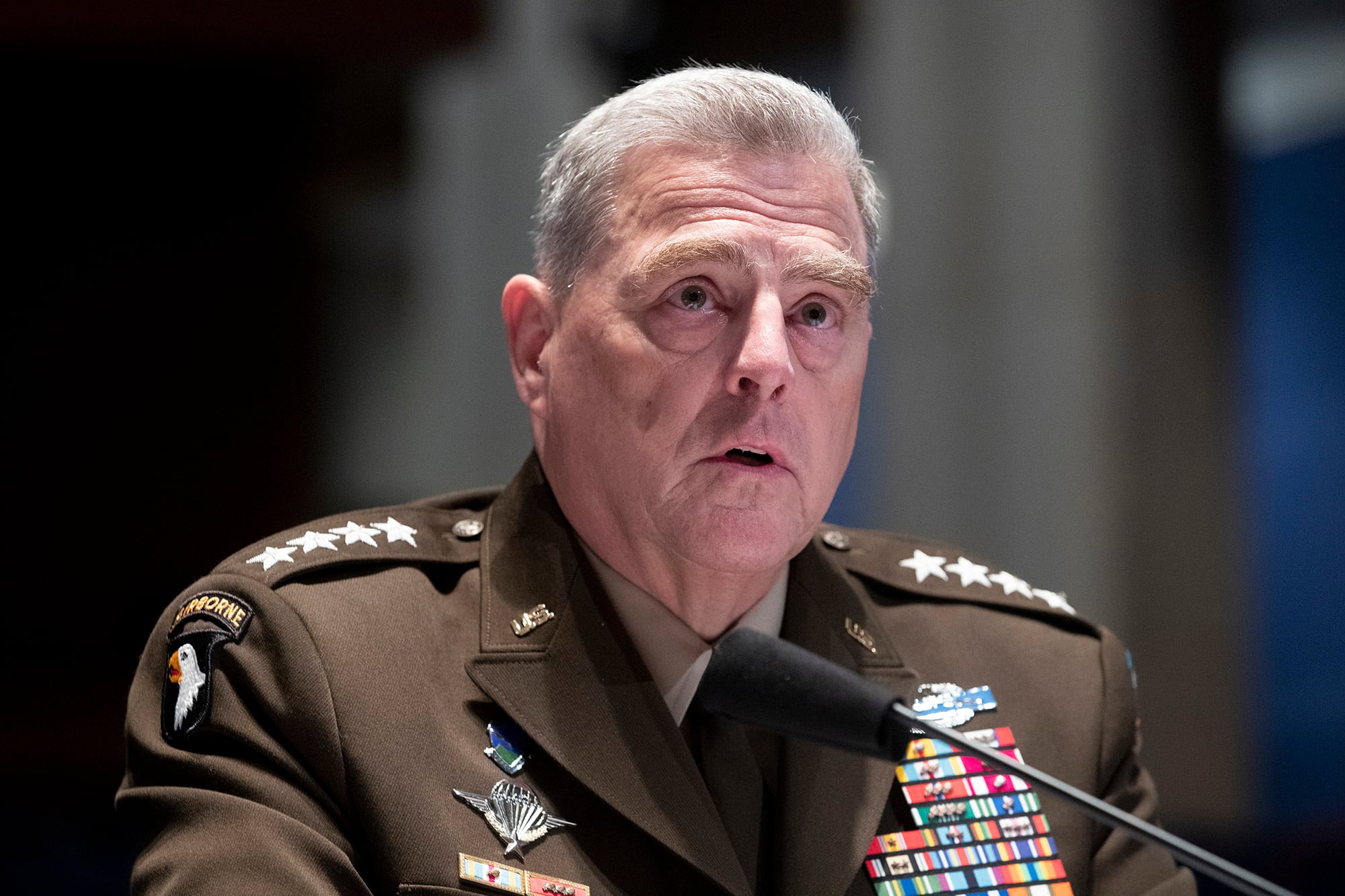Despite clear opposition from President Donald Trump, the Joint Chiefs chairman on Wednesday expressed support for the idea of renaming 10 Army posts named for Confederate generals.
During testimony before the House Armed Services Committee, Army Gen. Mark Milley took a hard line against the losing side of the Civil War, and left open the discussion for removing symbols from the armed forces that would glorify it.
“I personally think that the original decisions to name those bases after Confederate generals … those were political decisions …100 years ago,” he said. “And they’re gong to be political decisions today.”
Milley suggested a commission be created to look into renaming the posts.
The Southern installations, including Fort Benning, Georgia; Fort Hood, Texas; Fort Bragg, North Carolina; and Fort Lee, Virginia; were named by their Congress members, in a nod to Confederate heroes.
The idea of changing the names has bubbled up several times in the past few years, but the initiative has been passed from the Army to the Defense Department to Congress and back again, with little motivation from those organizations to make that change.
But in the wake of this summer’s Black Lives Matter movement, and subsequent conversations about race in America, the effort has gained traction in Congress and within DoD.
The House Armed Services Committee wrote a mandate to re-name the posts into an early draft of the 2021 National Defense Authorization Act, but President Trump has threatened to veto the bill outright if that language stays.
RELATED

Senate Republicans, however, have expressed enough support that they would be able to override a veto.
At the same time, a draft Pentagon memo circulated Monday would ban display of Confederate flags on military installations.
“The American Civil War was fought — and it was an act of rebellion, it was an act of treason at the time — against the union, against the stars and stripes, against the U.S. Constitution,” Milley said. “And those officers turned their back on their oath.”

Personally, he said, a staff sergeant once directly confronted him with his unease at serving on Fort Bragg.
“He said he had to work every day on a base that represented a guy that enslaved his grandparents,” Milley said.
But, Milley added, any process to change name would have to be thoughtful and deliberate.
“The way we should do it matters as much as that we should do it,” he said.
Meghann Myers is the Pentagon bureau chief at Military Times. She covers operations, policy, personnel, leadership and other issues affecting service members.





